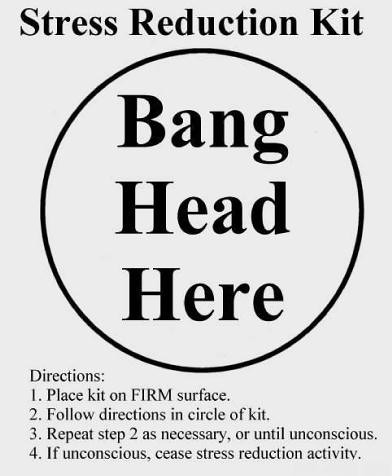
The NY Times reports that the emotional health of college freshmen is at a 25-year low, based on the annual survey conducted by UCLA’s Higher Education Research Institute.
In the survey, “The American Freshman: National Norms Fall 2010,” involving more than 200,000 incoming full-time students at four-year colleges, the percentage of students rating themselves as “below average” in emotional health rose. Meanwhile, the percentage of students who said their emotional health was above average fell to 52 percent. It was 64 percent in 1985.
Every year, women had a less positive view of their emotional health than men, and that gap has widened.
Some of the factors cited in this decline include pressures at school and at home, worries about the future, and financial stresses. The NY Times article doesn’t mention religious factors in emotional health. Terry Mattingly, of GetReligion.org, wonders if that’s an oversight:
I know that the economics of life today are creating major new problems for students. I know that there are pressures to succeed, internal pressures and parental pressures as well. Some students spend their undergraduate years stressed out because they are not sure they can get into the right grad school. The cycles go on and on.
But what about the stress of shattered relationships? The break-up of their homes and families? People may disagree about the nature of the “hook-up culture” and its effects, but few people on the right or the left think the current sex-and-alcohol circuses on many campuses is a good thing. Talk about pressures? Depression? And none of these realities have moral or religious content. Right?
Mattingly, of course, is being facetious —of course, these have moral or religious content, but it’s easy to overlook it if you aren’t used to thinking about the role of religion in student lives.
Two other items of interest struck me as I read this article today. The first doesn’t have anything to do with the article itself, but with the sidebar next to it. Take a look at the most-emailed article today on the NY Times’ website: it’s a blog post about the benefits of meditation. Coincidence? Or maybe worried parents are sending copies of the meditation article to their stressed-out freshman.
The second interesting thing relates to potential conflicts between students and faculty. The article notes that faculty can have a major influence on the stress level of students, which makes a lot of sense to me, but notice what kind of influence faculty can have:
Professor [Linda] Sax [of UCLA] has explored the role of the faculty in college students’ emotional health, and found that interactions with faculty members were particularly salient for women. Negative interactions had a greater impact on their mental health.
“Women’s sense of emotional well-being was more closely tied to how they felt the faculty treated them,” she said. “It wasn’t so much the level of contact as whether they felt they were being taken seriously by the professor. If not, it was more detrimental to women than to men.”
Considering what we know about professors’ views of evangelical Christians, I have to wonder how much of this stress is falling on the shoulders of Christian women. It also makes me thankful for my colleagues in InterVarsity’s Women in the Academy and Professions.
Meanwhile, look at this fascinating final quote from Professor Sax about how male students respond to conflicts with faculty:
She added: “And while men who challenged their professor’s ideas in class had a decline in stress, for women it was associated with a decline in well-being.”
Conflict with faculty can actually be a stress reducer for male students. I know that anecdotal evidence doesn’t count for much, but I can personally attest to this effect.
What do you think is the role of religion in the stress levels of undergraduates? In your experience, do involvement with a religious community, practicing religious disciplines like meditation, or a spiritual foundation from your family improve the emotional lives of students?
The former Associate Director for the Emerging Scholars Network, Micheal lives in Cincinnati with his wife and three children and works as a web manager for a national storage and organization company. He writes about work, vocation, and finding meaning in what you do at No Small Actors.

“The need to perceive a deeper meaning for our lives is not just a midlife phenomenon. According to brain specialist Joseph Chilton Pierce, a brain spurt occurs in early adolescence related to the capacity for idealism. An adolescent’s greatest development need is for adults whose model of a meaningful life encourages this idealism. If this capacity for idealism is not encouraged, the young person experiences profound frustration. Pierce suggests that our epidemic of teenage violence is a direct result of stunted brain growth and frustrated idealism caused by lack of meaning in the adult world that confronts them. When we move into adulthood without having discovered a deeper sense of meaning and purpose for our existence, our disillusionment can settle into a profound (and sometimes very subtle) cynicism and emotional detachment that are quite antithetical to the hope, passion and energy that are basic to our Christian faith.” — Ruth Haley Barton. “Sacred Rhythms: Arranging Our Lives for Spiritual Transformation.” InterVarsity Press, 2006. http://www.ivpress.com/cgi-ivpress/book.pl/code=3333. p115.
Comment: Just came across the quote while reading “Sacred Rhythms” for a class on “Spiritual Formation” at Evangelical Theological Seminary, Myerstown, PA.